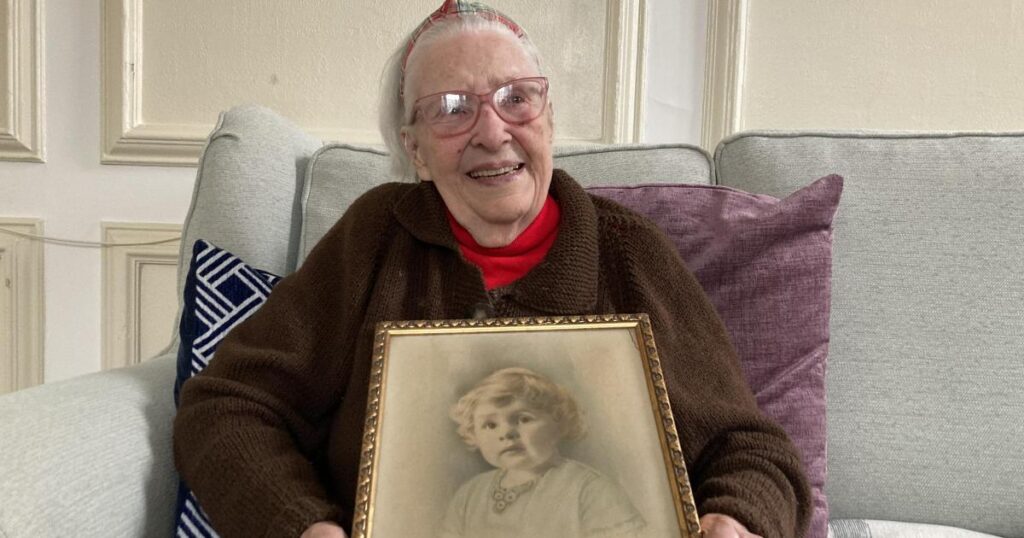Joan Mary Blanch Hewetson was born on December 5, 1924, in a little seafront flat in Bedford Square, just opposite the bandstand in Brighton.
Her father left her mother, Enid, Joan a couple of months after Joan was born and he was not spoken about in the family.

As a girl, Joan and her mother moved to First Avenue in Hove where her mother managed a “lovely” guesthouse which had visitors return “year after year”.
At the guesthouse, Joan had a ginger cat named Flash, who arrived during a storm one night, and a dalmatian named Domino. When the war started, a guest offered to take Domino to her countryside smallholding, but the spotted hound missed Joan and was forever escaping, with the police often called to find and return him.

During the war, Joan trained as a nurse. She began at Hove General Hospital before moving onto Southlands Hospital in Shoreham. She lived in the nurses’ home but frequently caught the bus back to Hove to see her mother.
Joan remembers the army firing practice bombs from the Downs to the sea and walking back home in the dark and hiding in bushes to the backdrop of bombs and doodlebugs.

After this, Joan spent 18 years in private nursing with an agency, working in private houses, nursing homes and hospitals, including working as a matron at a nursing home. During this time Joan was diagnosed with breast cancer but recovered fully after a mastectomy.
After Edith underwent a serious cancer operation, Joan no longer felt happy leaving her all day. With three spare rooms in their house in Selborne Place in Hove, and a love of babies, her mother suggested she run a nursery from home.

The nursery officially opened on May 6, 1966, registered for six babies. Of the first three babies Joan cared for, one had a harelip and cleft palate, the second had spina bifida and the third had cerebral palsy.
Joan also cared for a “battered” baby from Chichester Hospital, whose mother had abused her. Despite threats from the mother, Joan ensured the baby was safely cared for and eventually adopted.

Richard was adopted by a couple locally and now lives in Sweden with a family of his own. Joan considers him “like a son” and the two have a very close and loving relationship, with Richard regularly visiting her.
When the contraceptive pill became available, fewer babies came to Joan’s nursery, so she began caring for day children, while their parents were working.
All in all, Joan cared for over 300 children – not, Joan chuckles, all at once of course.
She said: “I loved the babies. Running the nursery was my favourite time – it broke my heart when I had to give it up.”

Alongside a life of caring, Joan was also a guide leader for many years and knitted hundreds – possibly thousands – of tiny sleepsuits, dresses and teddy bears for a charity called Cuddles which provides clothing for stillborn and premature babies.
She also raised thousands of pounds for Guide Dogs for the Blind by donating all the profits from a weekly car boot sale where she sold items she had collected and made.
She credits “still having a sense of humour” as the secret to a long and happy life.
She said: “At times I’ve been through hell, but I’ve usually come out the other end with a sense of humour.”
Source link
[Featured]
[Just In]



